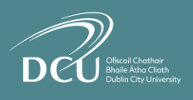About Msc In Psychology And Wellbeing in Dublin City University
Programme
The 90-credit programme is offered on both a one-year full-time and two-year part-time basis.
One-year, full-time
The full-time commitment is between two and two and a half days on campus per week (Monday and Tuesday*) for one year. In addition, all students are expected to attend a week-long Spring School on the DCU Glasnevin campus, usually held in March*.
Two-year, part-time
The part-time commitment is one full day on campus per week for two years - Year 1: Monday and Year 2: Tuesday*. In addition, all students are expected to attend a week-long Spring School on the DCU Glasnevin campus, usually held in March*.
*Please note that days and dates are subject to change depending on timetabling.
The programme will:
- Challenge students to develop their theoretical and conceptual knowledge of factors impacting wellbeing
- Provide research-led teaching including additional workshops and seminars in an interactive spring school
- Enhance opportunities for learners to enter or progress their careers in a variety of public and private settings
- Benefit those keen to pursue more advanced and specialised postgraduate studies
Careers
This programme provides an excellent springboard for students going on to further clinical. research or professional psychology training.
This programme would also benefit those who are working in applied settings including in education, community settings, mental health, family support, and clinical psychology.
Academic qualification equivalents
- Typically, you need a First Class Bachelor’s degree from a recognised top ranked university and/or affiliated colleges with a minimum of 60% average across all semesters. Students who have studied at a lower tiered institution may be considered with an overall average mark of 65% or above.
English language requirements (one of the below):
- IELTS for Postgraduate Taught Programmes: Overall score of 6.5 or above, with no less than 6.0 in any one skill. Additionally DCUBS require 6.5 in Speaking and Writing.
- TOEFL: Total Score of 92. DCU Business School additionally requires all section scores 21 or above.
- PTE Academic: Minimum score of 63, with no section score below 59
Dublin City University Highlights
| University Type |
Public University |
| Campus Setting |
Urban |
| Establishment Year |
1975 |
| No. of Campuses |
3 |
| No. of Residence Halls |
3 |
| International students |
2,337
71% in UG, 29% in PG courses |
| Research Funding |
~35 million EUR |
| Cost of Attendance |
~22,500 EUR |
| Applications Accepted |
Online/Offline |
| Work-Study |
Available |
| Intake Type |
Semester wise |
| Mode of Program |
Full time and online |
Dublin City University Average Tution fees And Other Expenses
Foreign students who wish to enrol at Dublin City University must be aware of the associated costs in order to budget appropriately and apply for scholarships when needed. The tuition costs for well-known programmes and other expenses related to studying in Ireland are covered below.
Tuition Fee for Dublin City University
Here are the details of the UG and PG fees for international students planning to study at any of the following faculties.
| Programs |
UG (EUR) |
PG (EUR) |
| Engineering |
15,000 |
17,000 |
| Business |
14,000 |
16,000-19,000 |
| Humanities |
15,000 |
15,000 |
| Science |
15,000 |
15,000 |
| Education |
12,600 |
13,700 |
Dublin City University Cost of Living
The cost of living here includes monthly expenses an international student would require to study at Dublin City University:
| Expense |
Monthly Cost (EUR) |
| Rent (On-campus) |
692-1216 |
| Rent (Off-campus) |
850-1300 |
| Food |
250 |
| Travel |
132 |
| Books and Materials |
75 |
| Medical |
45 |
| Miscellaneous |
178 |
| Total |
Approximately 2,222 |
